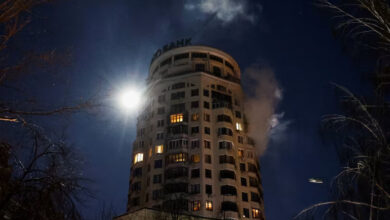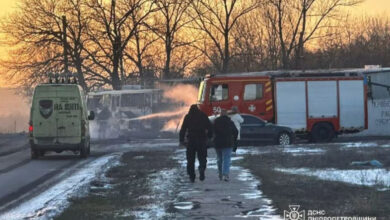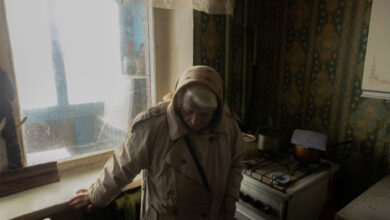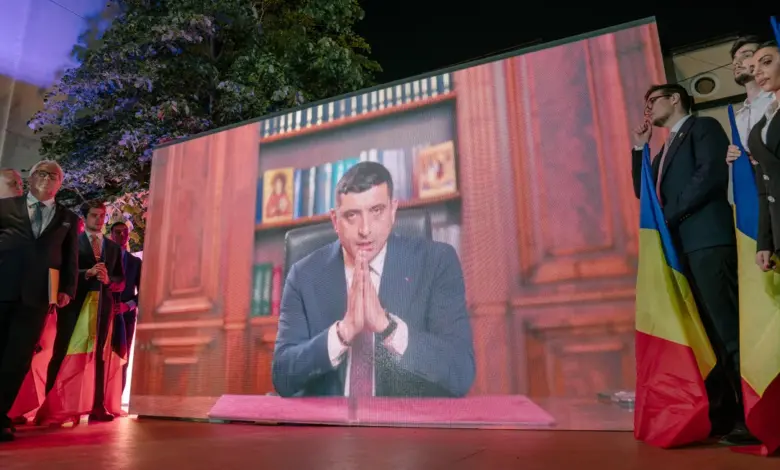
One of them often dons a Trump-style red baseball cap and wants to make his country “great again.” The other visited the US president at the White House to drum up support. Both could soon become presidents of major allies on Ukraine’s border.
In Romania, the hard-right euroskeptic George Simion convincingly won the first round of the presidential re-run on Sunday, making him a strong favorite to win the final round on May 18.
On that same day, Poland will also hold the first round of a presidential ballot, where both the nationalist candidate Karol Nawrocki and the far-right upstart Sławomir Mentzen have been making gains. If no candidate wins more than 50 percent of votes, a second round will be held two weeks later.
Although victory for Simion is much more likely than for Poland’s right-wing candidates, Europe is now facing the prospect that two of Ukraine’s neighbors could by next month be led by presidents who are hostile towards Brussels and aping a MAGA-style politics.
“Congratulations,” Nawrocki said to Simion on Monday in a message of support on X.
Also hailing Simion’s first-round victory, Mentzen jokingly asked if Romanian authorities “will cancel the elections again.” This was a reference to the decision last year by Romania’s constitutional court to annul the first-round victory of Calin Georgescu, a Kremlin-friendly ultranationalist, after intelligence services pointed to possible Russian interference in his TikTok-fueled campaign, which he and Moscow denied. Georgescu was later banned from May’s re-run, after prosecutors charged him with establishing a fascist group and other crimes.
The court’s decision to cancel the election had little precedent, outraged many in the country and caught the attention of officials in the Trump administration. In his blistering speech in Munich in February, US Vice President JD Vance singled out Romania as the grossest case of what he called Europe’s “threat from within.”
Sunday’s first-round results showed the court’s decision did little to quell Romania’s simmering nationalist fervor and may even have inflamed it. Whereas Georgescu secured 22 percent of votes in November, Simion won a resounding 41 percent in May’s do-over, far exceeding polling expectations. His nearest contender, Nicusor Dan, the centrist mayor of the capital Bucharest, came second at around 21 percent.
Many in Brussels will be hoping that the pro-European Union voters will rally around Dan in the second round, shutting the far-right out of power, as happened in France in its parliamentary election last year. But analysts say divisions among the mainstream parties mean Simion is likely to win the May 18 second round.
Although Romania, like Poland, has a parliamentary system, the presidents of both countries are commanders of the armed forces and have significant sway over military spending and foreign policy.

While not as brazen as Georgescu, Simion shares many of his views and even cast his ballot alongside him on Sunday. Simion has long voiced his opposition to military aid for Ukraine, and last year was banned by Kyiv from entering the country, citing his “systematic anti-Ukrainian activities.” He is also barred from visiting neighboring Moldova. Simion has claimed he is not anti-Ukraine or pro-Russia, but simply “pro-Romanian.”
In Poland, the picture is less clear-cut. With President Andrzej Duda of the conservative Law and Justice Party (PiS) unable to run for a third term, Karol Nawrocki – currently head of Poland’s Institute of National Remembrance – is attempting to pick up his mantle. Meanwhile, Sławomir Mentzen, a leader of the far-right Confederation Liberty and Independence alliance, has climbed up the polls – but is deemed unlikely to reach the second round.
Although technically running as an independent, Nawrocki has the backing of PiS, which became increasingly authoritarian over its eight years in power, before its defeat in a 2023 parliamentary election by an alliance led by Donald Tusk’s liberal Civic Platform party.
Nawrocki met Trump at the White House last week to mark the National Day of Prayer. “President Trump said, ‘you will win,’” Nawrocki told private broadcaster TV Republika after his reception in the Oval Office.
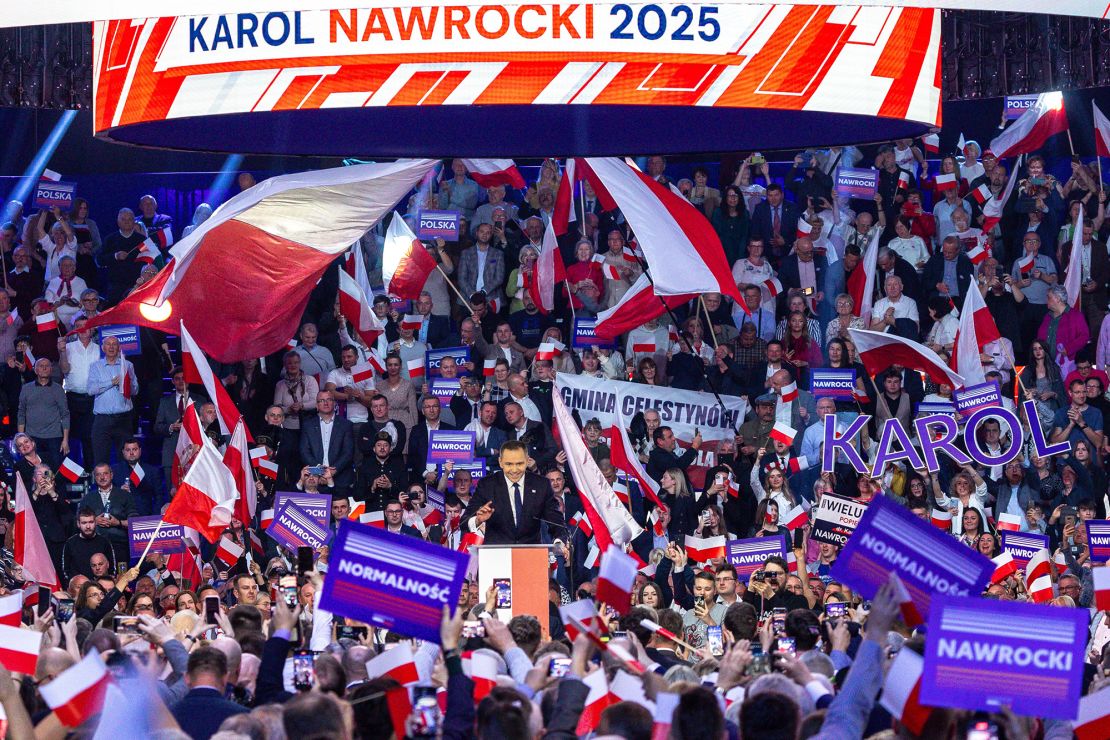
Nawrocki has accused Volodymyr Zelensky of behaving “indecently” towards his allies, echoing criticism by Vance that the Ukrainian president is not sufficiently “grateful” for the support his country receives. In the fallout from Zelensky’s Oval Office meeting with Trump and Vance, Tusk – prime minister since 2023 – said it is “becoming clear who in Poland wants to pursue Russian interests.”
Currently polling at around 25 percent, Nawrocki is trailing Rafał Trzaskowski, the centrist mayor of Warsaw representing Tusk’s Civic Platform party, who is leading at around 33 percent.
But Simion’s overperforming polling expectations will provide encouragement to Poland’s conservative candidates.
Mentzen said Simion’s first-round victory showed that “Romanians again want to choose differently than the EU elites would like.” Further to the right than Nawrocki, Mentzen has also tacked closely to Trump, calling for a MAGA-style “revolution of common sense” in Poland.

